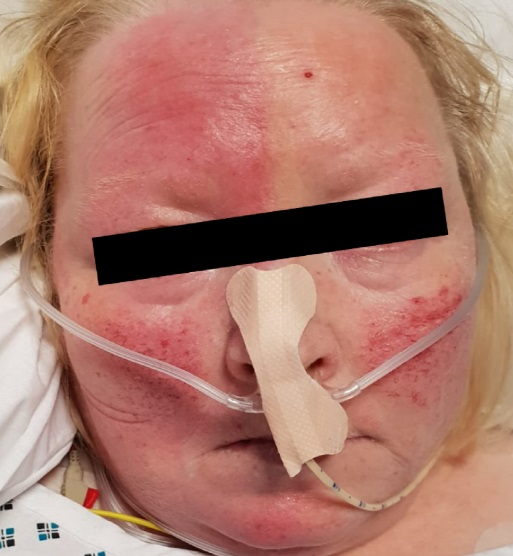Doctors From Indonesia Warn That COVID-19 infections Can Also Trigger Harlequin Syndrome
Nikhil Prasad Fact checked by:Thailand Medical News Team Jul 09, 2025 7 months, 2 weeks, 1 day, 23 hours, 36 minutes ago
Medical News: Doctors in Indonesia have reported a rare and puzzling medical condition in an 82-year-old man who developed Harlequin Syndrome (HS) after recovering from COVID-19. Harlequin Syndrome is a rare disorder of the autonomic nervous system that causes one side of the face to flush red and sweat while the other side remains pale and dry. It is typically caused by damage to specific nerve pathways in the upper chest and neck area.
 Harlequin Syndrome
Harlequin Syndrome
In this
Medical News report, researchers from the Atma Jaya Neuroscience and Cognitive Center and the Department of Neurology at Atma Jaya Catholic University of Indonesia, along with the Neurosurgery Division of Udayana University in Bali, detailed the case of an elderly man who experienced sudden left-sided facial redness without any known triggers. He had no skin irritation, pain, or eye issues, but he had repeated episodes—ten times over a year—since recovering from a symptomatic COVID-19 infection.
A Close Look at the Patient’s Health and Medical Tests
The patient had several underlying conditions, including mild asthma, high cholesterol, and a previous stroke in the frontal brain areas. Blood tests revealed mildly low hemoglobin and, more importantly, a highly elevated D-dimer level—a marker associated with blood clots and inflammation. During each HS episode, the D-dimer spiked to more than five times the normal level, suggesting an ongoing inflammatory or clotting issue even long after the COVID infection resolved.
MRI scans showed old infarctions but no new structural damage. Doctors ruled out other possible causes of HS such as surgical complications, trauma, or tumors. The patient's anticoagulant therapy was continued to lower the risk of clot-related complications, and he showed full recovery at a six-week follow-up.
Possible Link Between COVID and Nerve Damage
The researchers propose that persistent inflammation from long COVID may damage small blood vessels and nerves, especially the sympathetic nerves that control facial flushing and sweating. COVID-19 is known to disrupt the immune system, causing inflammation that lingers for months and affects blood vessels, nerves, and organs. Elevated D-dimer levels in long COVID have already been linked to a higher risk of strokes and other neurological issues.
In this case, the COVID-related inflammation may have triggered damage to the sympathetic nerve fibers that run alongside arteries supplying the face, particularly those following the external carotid artery. This may explain why the man’s symptoms affected only the side of his face, sparing the eyes and forehead.
What This Rare Case Teaches Us
This is the first reported case of Harlequin Syndrome after COVID-19 in Indonesia and only the second in the world. The study highlights how long COVID can cause uncommon nerve conditions even months after infection. Although the patient recovered, the possibility of recurrence remains.&l
t;br />
The case stresses the need for doctors to be aware of unusual symptoms that may appear long after someone has recovered from COVID-19. Ongoing monitoring and further studies are needed to understand how COVID-19 affects the autonomic nervous system and to find ways to prevent long-term damage.
The study findings were published in the peer reviewed journal: Acta Neurologica Taiwanica
https://journals.lww.com/ant/fulltext/9900/harlequin_syndrome_in_a_post_covid_19_infection.12.aspx
For the latest COVID-19 News, keep on logging to Thailand
Medical News.
Read Also:
https://www.thailandmedical.news/news/viral-infection-and-immune-response-behind-the-surge-in-facial-paralysis-cases-worldwide
https://www.thailandmedical.news/news/covid-19-news-insights-from-a-polish-case-report-shows-that-sars-cov-2-infections-can-cause-femoral-nerve-palsy-due-to-coagulopathy-issues
https://www.thailandmedical.news/news/covid-19-symptoms-new-documented-case-shows-that-sars-cov-2-can-cause-cranial-nerve-palsy-with-resulting-double-eye-vision-diplopia
